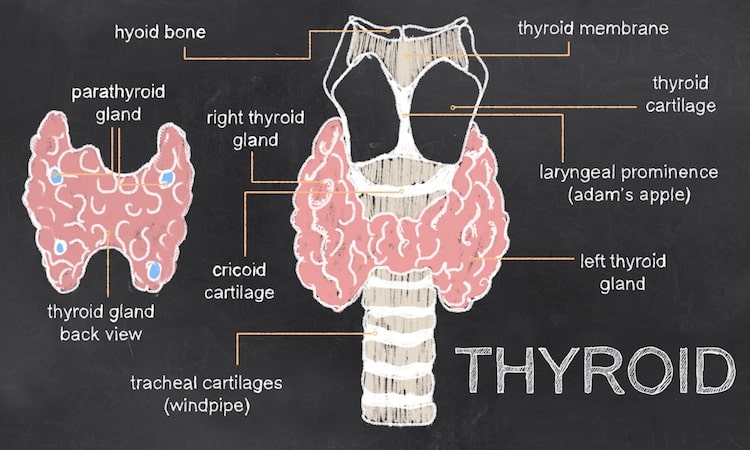Understanding Hashimoto’s Thyroiditis

Hashimoto’s Thyroiditis, a disorder that more formally is known as chronic lymphocytic thyroiditis or autoimmune thyroiditis, is another one of those ailments with a nebulous history and an unknown cause. Medical researchers believe genetics, hormones, radiation exposure or an excess of iodine might — singly or in concert — be the responsible culprit.
So what exactly is Hashimoto’s Thyroiditis? In laymen’s terms, it’s a disorder in which your thyroid is attacked by your immune system. When that happens, you can develop hypothyroidism, a condition in which your thyroid does not make enough hormones for the body’s needs.
The disorder, which was discovered in the early-1900s by a medical scientist named Hakaru Hashimoto, most commonly affects women who are between 30 and 50 years of age, tends be hereditary, but isn’t uncommon among men.
Taking a step back for a moment, if you’re unfamiliar with the thyroid gland, it is located in the front of your neck (below your Adam’s apple in front of the windpipe). It creates the hormones necessary to control your metabolism, including heart rate and the use of calories in your body.
For those who suffer Hashimoto’s Thyroiditis, the most common symptoms include a slowed heart rate, feeling cold, weight gain, joint and muscle pain, constipation, fatigue, heavy menstrual flow or irregular periods, panic disorder, dry and thinning hair, depression and more.
Also, inflammation often occurs, and the reduction in the amount of hormones produced in the thyroid for the body’s use leads to a condition known as hypothyroidism. And since these hormones regulate the way the body uses energy, bodily functions related to the symptoms mentioned above can be curtailed.
Here at Restoration Healthcare, patients who present symptoms of Hashimoto’s Thyroiditis have their medical history taken and then undergo a physical exam where our doctors look for early signs of nodules, unusual growths or a goiter, among other symptoms. We also perform extensive blood tests, including a TSH test, which is considered among the most accurate measurements of thyroid activity.
Other tests we might call for measure the amount of thyroid hormone in the blood, and the presence of thyroid molecules that might be attacking the body. We might also refer you out for ultrasound or CT scans — which produce images and scans that go a long way in confirming whether Hashimoto’s is present.
Hashimoto’s Thyroiditis, with or without hypothyroidism, is treated in a number of different ways here at Restoration Healthcare, including through changes in diet, as well as with synthetic thyroxin, which provides a steady supply of thyroid hormone throughout the day.
On the ”changes to your diet” side of the equation, specific foods (both cooked and raw) may be causing the immune system to attack your thyroid gland. At Restoration Healthcare, we can run tests from a clinical immunology lab that specializes in functional immunology and autoimmunity, to determine to what extent food is related to your symptoms. These tests — which are not part of the medical screening protocol for Hashimoto’s Thyroiditis at most doctor’s offices — address the cross-connections between your body’s endocrine, gastrointestinal and neurological systems, which play a significant role in the development of a complex disorder like Hashimoto’s.
If food is found to be the cause of your Hashimoto’s, the treatment plan can be as simple rotating the offending food items out of your diet. At that point, thyroid medication, including synthetics, can be reduced or sometimes eliminated altogether. And as treatment progresses, we continue to test your blood, adjusting the treatment plan as needed.
The really good news is that such treatment almost always assures control of Hashimoto’s Thyroiditis, enabling you to live a healthy, busy lifestyle with a minimum of disruption.
If you believe you suffer from any of the symptoms mentioned in this blog post and want to test for Hashimoto’s Thyroiditis, please call us at (949) 535-2322 to schedule an initial visit and appointment. You don’t have to suffer!

